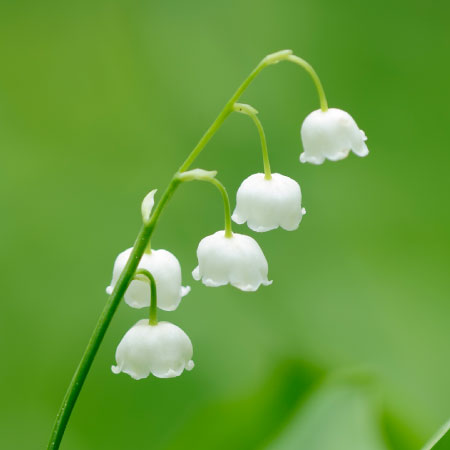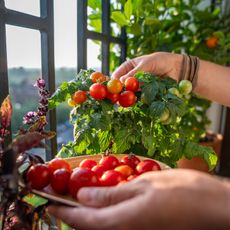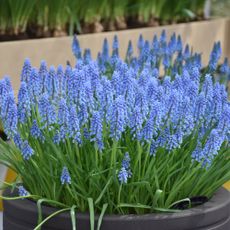Top 10 Questions About Watering Gardens

Here at Gardening Know How we get lots of questions, and our goal is to provide answers to those inquiries to the best of our knowledge. Whether it's growing particular plants, troubleshooting problems in the garden, or even questions pertaining to basic care like watering or fertilizing, we are here to help. The following information includes 10 of the most commonly asked questions about watering garden plants.
1. Is it all right to use bath water to irrigate the garden?
Yes, you may use graywater from sinks, tubs and showers if you follow certain guidelines. Water from garbage disposals and water with any iota of fecal matter in it, such as from toilets and water used to clean diapers, is not acceptable for use in gardens. Consult and research your state's regulations on the use of acceptable sources of graywater and its use near or around wells and other sources of water. Avoid spraying graywater on plant foliage. While it is best to reserve graywater for hydrating ornamental plants and rely on fresh water for vegetables, you may use graywater on non-root crop vegetables, provided you take care not to spray it on edible parts of the plant.
2. How to filter soft water for my garden?
You have a few options for using softened water in the garden. Create an access point to your water before it is subjected to the softening process by installing a bypass spigot on the exterior of your house. Secondly, you may try diluting softened water with rainwater or distilled water. However, this will only delay an inevitable problem. While this dilution makes the water less harmful to your plants, it doesn't render the water harmless to them. Sodium is still going to build up in the soil and too much sodium is deadly for plants.
3. When should you water your vegetable garden?
The ideal time to water your vegetable garden is in the early morning, while it is still cool. This allows more water to reach the root zone without being lost to evaporation and provides the plants with a water source throughout the day as it is subjected to the beating sun. If early morning is not feasible for your schedule, the next best time is late afternoon or early evening. Watering at this alternate time of the day also minimizes evaporation; however, you must allow enough time for the plants to dry before night comes to prevent the onset of fungus and mildew.
Gardening tips, videos, info and more delivered right to your inbox!
Sign up for the Gardening Know How newsletter today and receive a free copy of our e-book "How to Grow Delicious Tomatoes".
4. If I am watering with a hose, how do I know if I am watering enough?
There are a few things you can try here. Soil moisture can be monitored using a soil moisture meter. You can also inspect the soil directly with a trowel. Insert it into the soil and tilt it back. If the soil is moist to a depth of 6 to 12 inches (15-30 cm.), then you are watering enough.
5. How to keep plants watered on vacation?
One option to consider when away on vacation is to enlist the services of a plant sitter, whether it be a family member, friend or neighbor or, if you're a trusting soul, hiring a properly vetted plant sitter online. If you do not wish to rely on others for your plants' survival, you do have other options. For container plants, I would recommend the use of self-watering planters. All you need to do is fill up a water reservoir within the planter and your plant's hydration needs will be taken care of for about a week. For the outdoors, soaker hoses used in conjunction with timers is most ideal.
6. How long to run a soaker hose?
The answer to this question depends on the soil, temperatures and the types of plants you have. Without any of these specifics, the best I can advise is to check your soil. The day after you water using a soaker hose, check the soil. Has the moisture penetrated several inches? If it hasn't, you may want to adjust and run your soaker hose a little longer next time. As you can see, it will take some trial and error to get it right.
7. What is the watering schedule for aeroponics?
This is a bit of a challenge to answer because I don't know what plant you are growing or what type of aeroponics system you are using. Different types of aeroponics systems would have different requirements. I would recommend researching your specific aeroponics system by reading the literature it came with as well as available resources online, and perhaps contacting the manufacturer directly, if needed. It's also advisable to research your plant's specific needs when determining a water schedule - Gardening Know How is a great resource!
8. How do I water my plant properly?
What type of plant is it? Is it a potted plant indoors or in the ground or a container outdoors? Where are you located - are you in a hotter arid region? This is such an open-ended question that, unfortunately, I couldn't possibly answer it with any specific plan of watering action without some additional details. My best advice is to research your plant because every plant is different in what it needs. There are some great authoritative leading gardening sources out there, such as Gardening Know How - what do they suggest for your specific plant? My only other general advice is to try to achieve a balance when watering. Extremes, such as over- or under-watering, are never in your plant's best interest.
9. How often to water plants in containers during summer?
There are just too many variables involved (type of plant, environmental conditions, potting medium and soil, temperature, etc.) for me to prescribe a proper watering schedule for containers. In summer, it wouldn't be unheard of if you had to water certain plants daily or even twice daily, especially in temps over 85 F. (29 C.). The frequency of watering is determined by checking the soil. You can do this with a soil moisture meter or by inserting your finger in the soil - if the top inch or two (2.5 to 5 cm.) is dry, it's time to water. Vigilance is key.
10. Is the water from the air conditioning condenser coils harmful when used in gardening?
The only time it would be considered harmful is after performing a chemical coil cleaning on your indoor or evaporative coil. You would then need to wait for the chemicals to flush out of your condensate drain, approximately a waiting period of 14 days. Otherwise, it's perfectly fine to use the water from air conditioners on your plants.
We all have questions now and then, whether long-time gardeners or those just starting out. So if you have a gardening question, get a gardening answer. We're always here to help.

Shelley Pierce was a writer for Gardening Know How, contributing to hundreds of articles for the site.
-
 Best Tomatoes For Containers: 10 Tastiest Varieties For Plentiful Produce In Compact Areas
Best Tomatoes For Containers: 10 Tastiest Varieties For Plentiful Produce In Compact AreasThese are the best tomatoes for containers that prove you don't need to have a large space or elaborate garden to grow delicious produce.
By Bonnie L. Grant
-
 Ultimate Potted Flowers For Spring: 8 Brilliant Blooming Options for Spring Containers
Ultimate Potted Flowers For Spring: 8 Brilliant Blooming Options for Spring ContainersCelebrate the most uplifting of seasons with the most dazzling container flowers imaginable. Here, we present some of the loveliest potted flowers for spring…
By Tonya Barnett